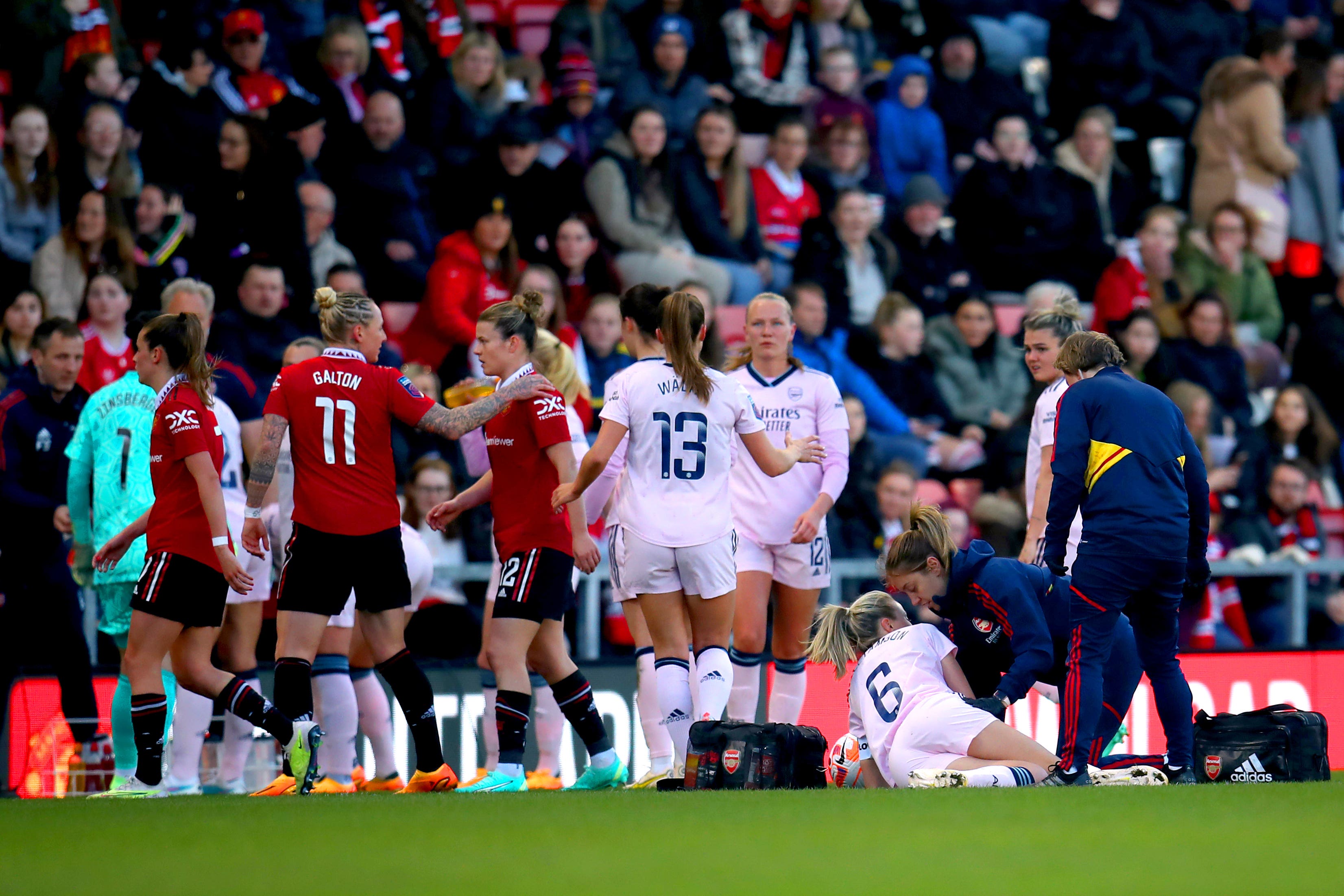UEFA to investigate ACL injuries in women’s football
A number of high-profile women’s players have suffered serious knee injuries in recent years.

UEFA has launched a new initiative to investigate and better understand anterior cruciate ligament injuries in the women’s game.
A number of high-profile players have suffered ACL injuries in recent seasons, including England pair Beth Mead and Leah Williamson and two-time Ballon d’Or winner Alexia Putellas.
The new plan from the European governing body is a recommendation from its recently-established health expert panel.
A group compromising internationally-renowned experts and researchers has been set up to look into the high prevalence of such injuries in women’s football.
One of the group’s first steps has been to create an awareness questionnaire open to all individuals affected by ACL issues, including players, coaches, physicians, physiotherapists and parents.
It aims to produce a consensus for an ACL injury prevention and management plan by summer 2024.
UEFA chief medical officer Zoran Bahtijarevic said: “Addressing the prevalence of ACL injuries in women’s football is crucial for the wellbeing of athletes and the advancement of the sport.
“UEFA’s proactive step in establishing a panel of experts reflects a commitment to understanding and reducing these injuries in the future.”
Bookmark popover
Removed from bookmarks